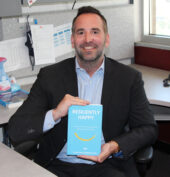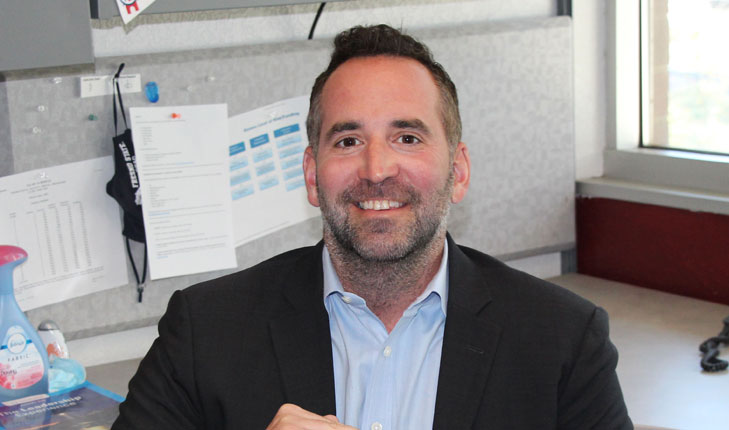
Jonathan Biggane
Accepting and adapting to hardship is essential to happiness and mental health, said Dr. Jonathan Biggane, chair of the Department of Management at Fresno State, in his new book, “Resiliently Happy: A Guide to Building Resilience and Finding Happiness,” recently released on Amazon.
Biggane described his book as a summary and popularization of over 50 years of research into the science of happiness and psychological resilience, including aspects of psychology, sociology, neurobiology, medicine and business. Citing both academic sources and first-person accounts of personal resilience, Biggane said facing painful circumstances with positivity and self-reliance can transform painful experiences into opportunities for personal growth and improved mental health.
“At some point in life, nearly everyone will face a traumatic experience,” Biggane said. “It’s not a question of if we’re going to face adversity, it’s when. Preparing yourself for life’s uncertainties and taking a resilient outlook significantly lowers your risk of burnout, depression, anxiety and other maladies. What’s more, in the process of becoming more resilient, you’ll naturally become happier.”
Biggane said the most surprising finding of happiness research is that external life changes, whether good or bad, have little effect on long-term happiness — which means most people have much greater abilities to recover from setbacks than they realize.
“People often think that, ‘if I get that new job, a bigger house or a better car, then I’ll be happy,’” Biggane said. “But we tend to adapt quickly to any changes in life circumstances. The bad news is that the satisfaction of buying that new car won’t last very long. The good news is that, with few exceptions, we can also experience bad events and return to our former baseline of happiness within a few months.”
Biggane has long been interested in the scientific study of happiness, which was also the subject of his previous book, “The Happiest People.” Biggane said the example of his brother, a former Green Beret who successfully completed rigorous special forces training and medical school, led to an interest in people who draw emotional strength from pushing through difficulties.
The study of happiness is also significant for Biggane’s scholarly field of management studies, since happiness and resilience in workers is associated with high productivity, creativity, job satisfaction and workplace engagement.
“Resiliently Happy” doesn’t just explain the relation between resilience and happiness, but guides the reader through practical exercises to increase resilience, self-efficacy and constructive responses to stress.
Biggane said some of the most important actions we can take to improve happiness are to practice kindness and build meaningful relationships.
“The primary factor in resilience is having caring and supportive relationships. In one study of over 300,000 participants over 7.5 years, researchers found people with poor relationships were 50% more likely to die. To put this into perspective, a lack of quality relationships had the same effect as smoking almost a pack of cigarettes a day,” Biggane said.
“Resiliently Happy” is available from Amazon in both paperback and Kindle formats.





